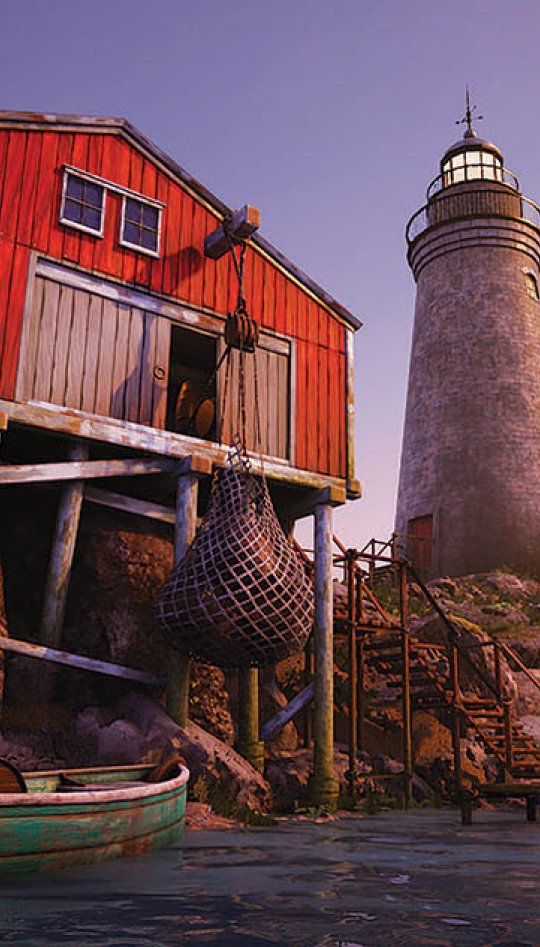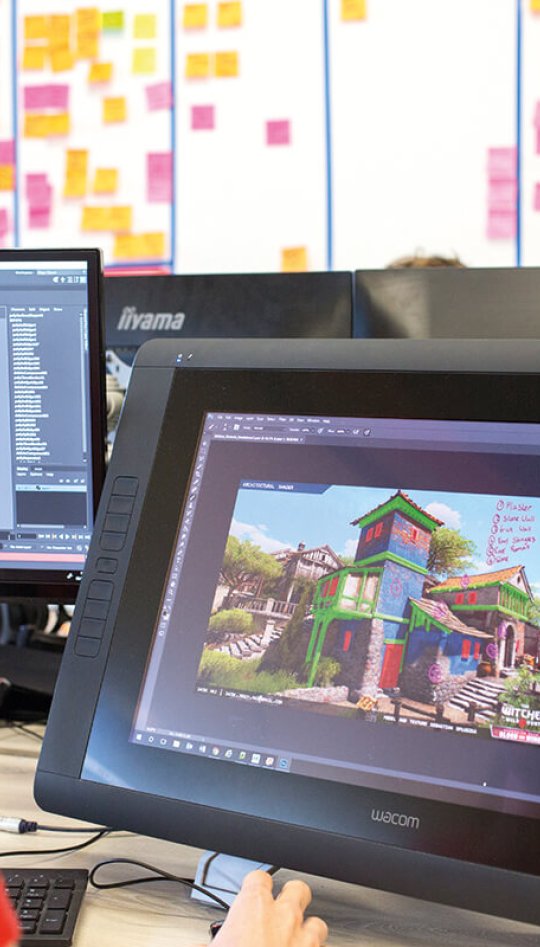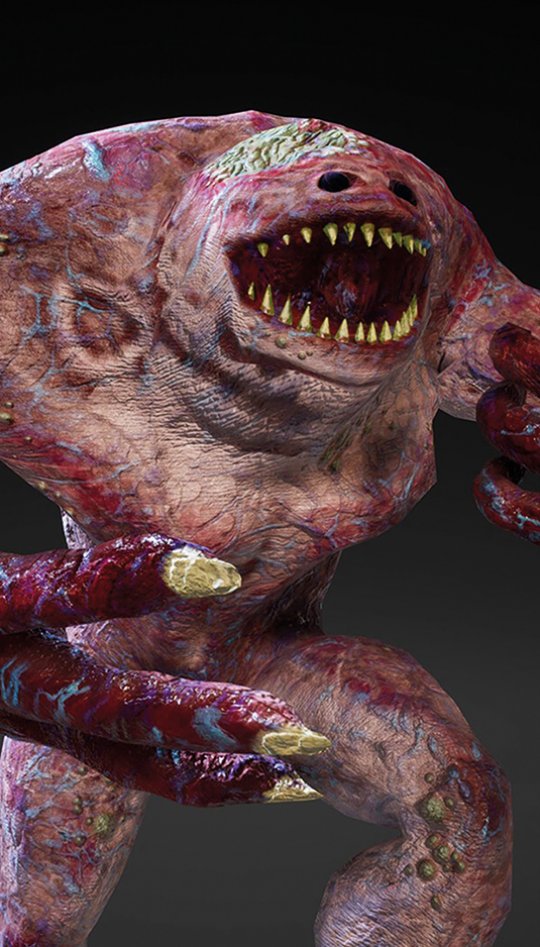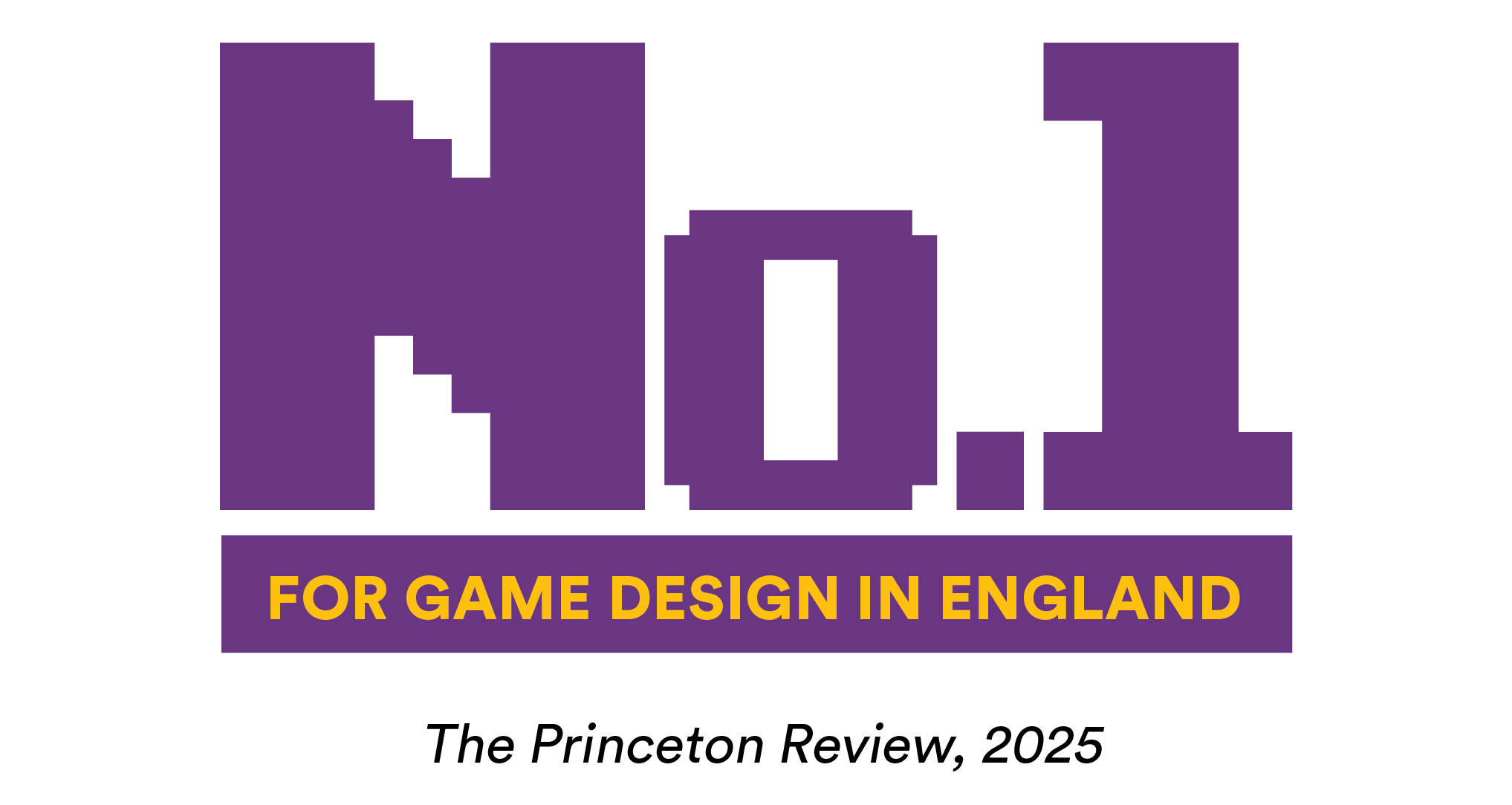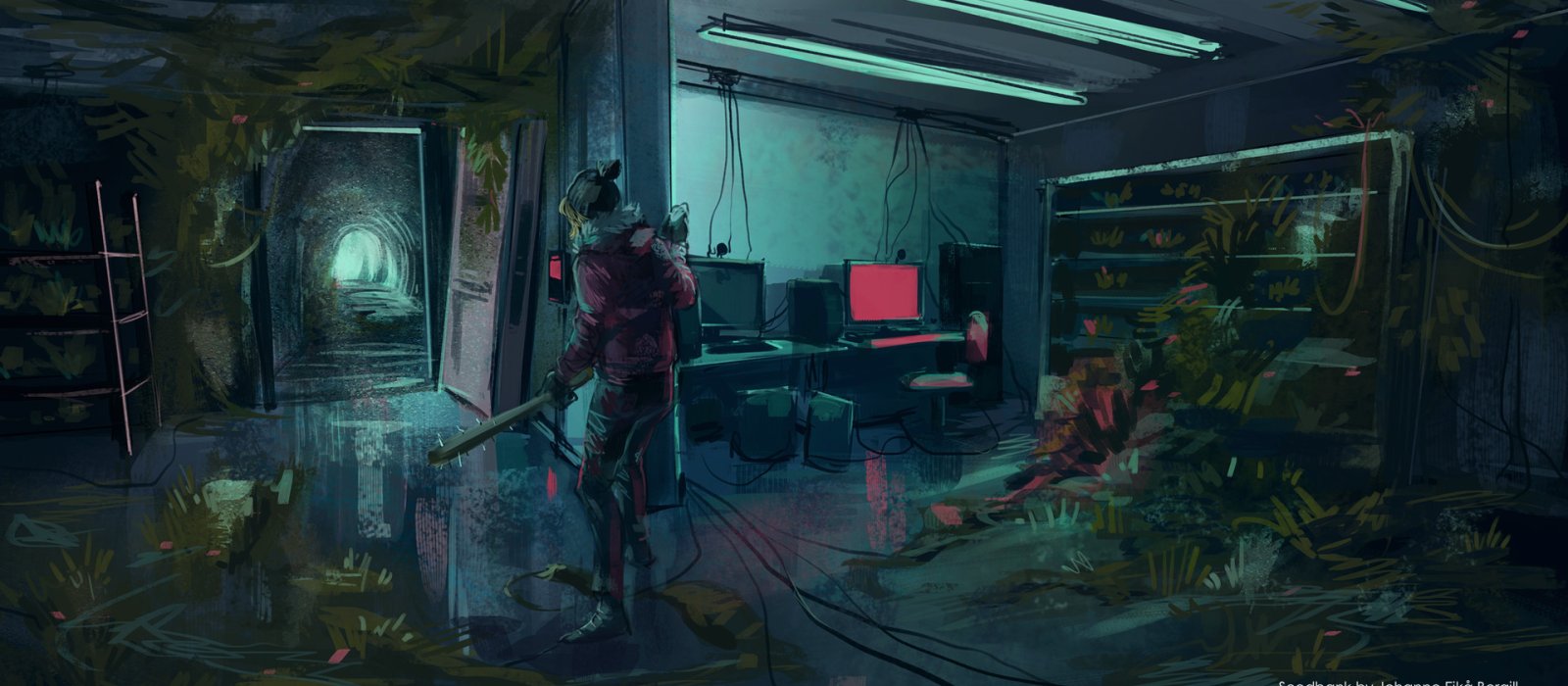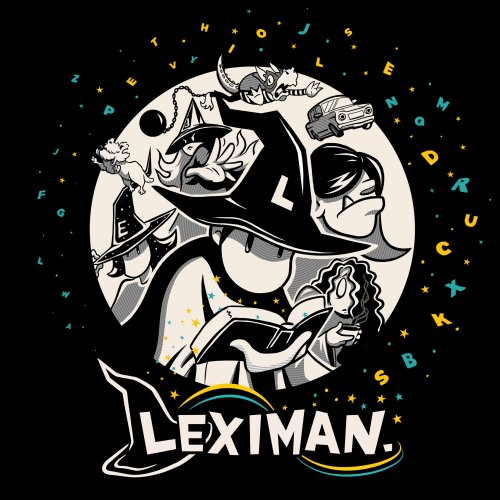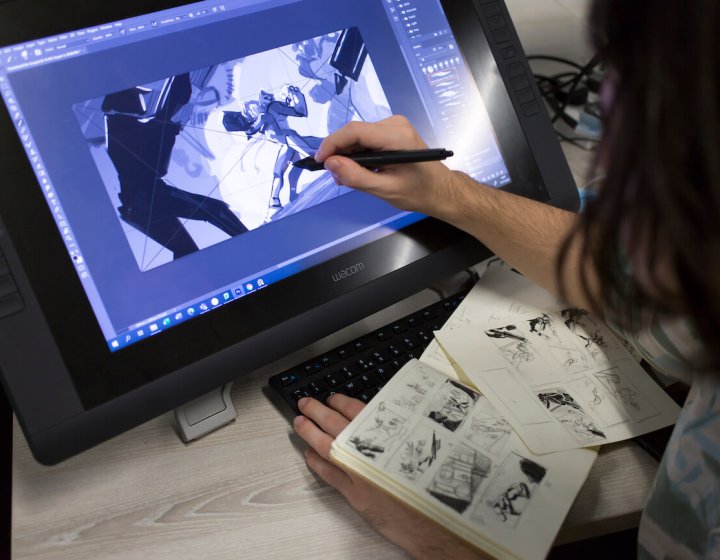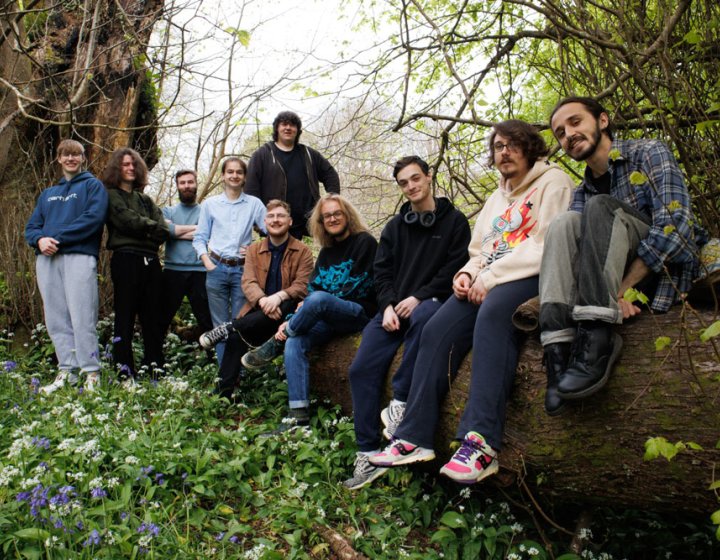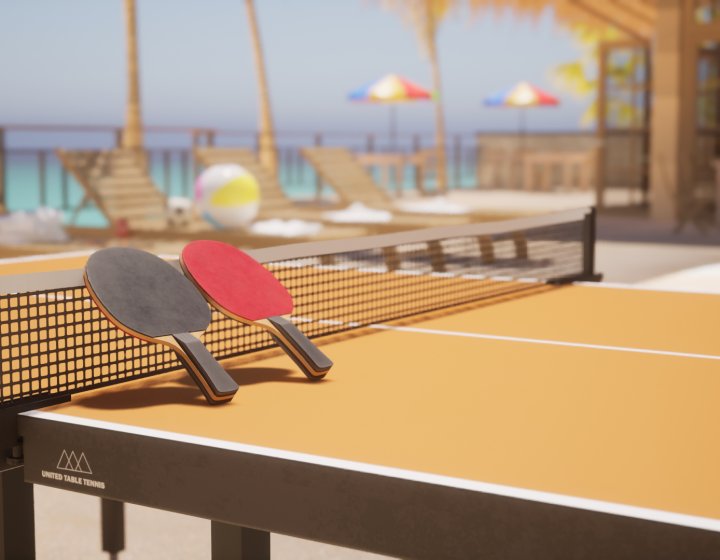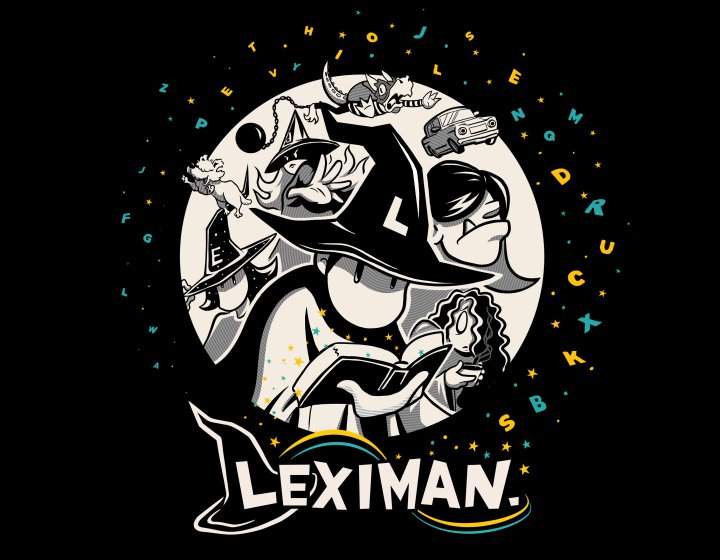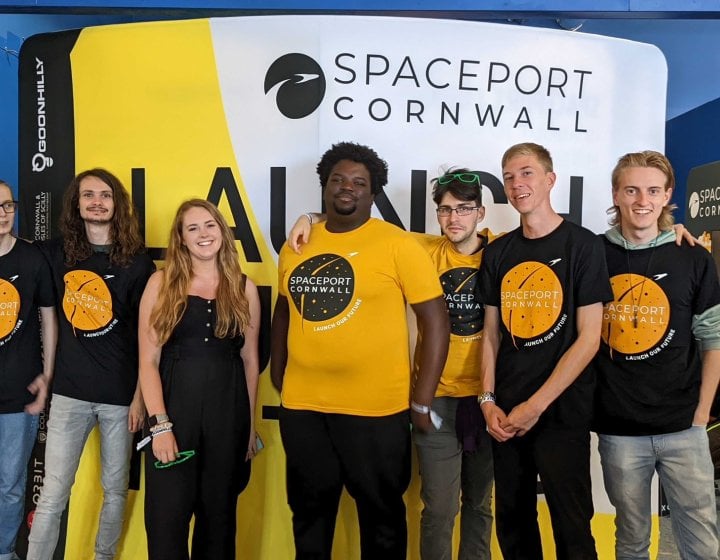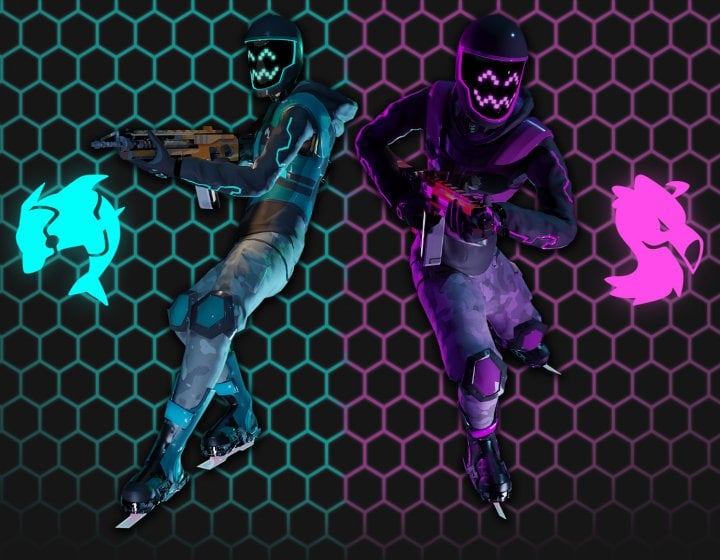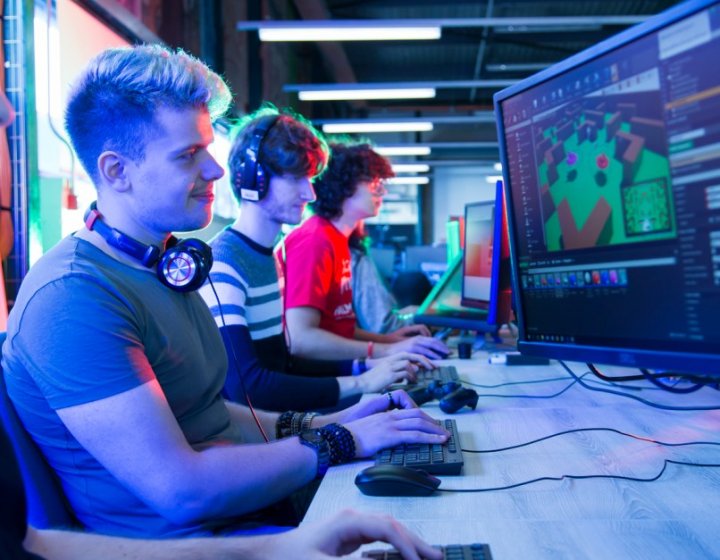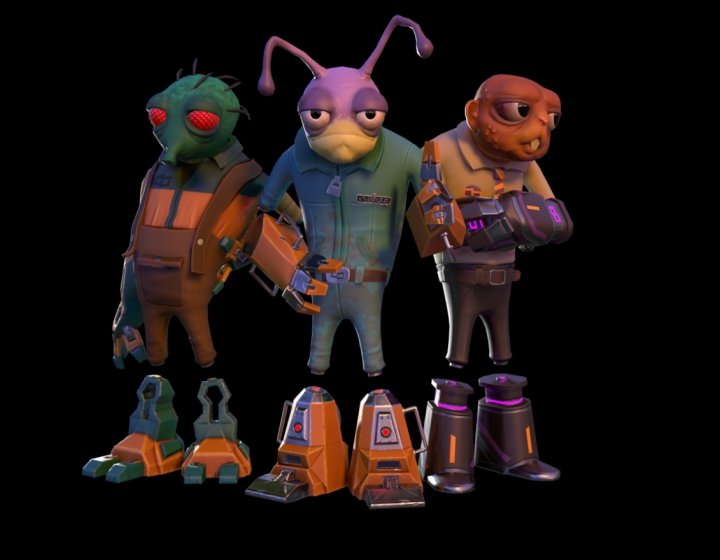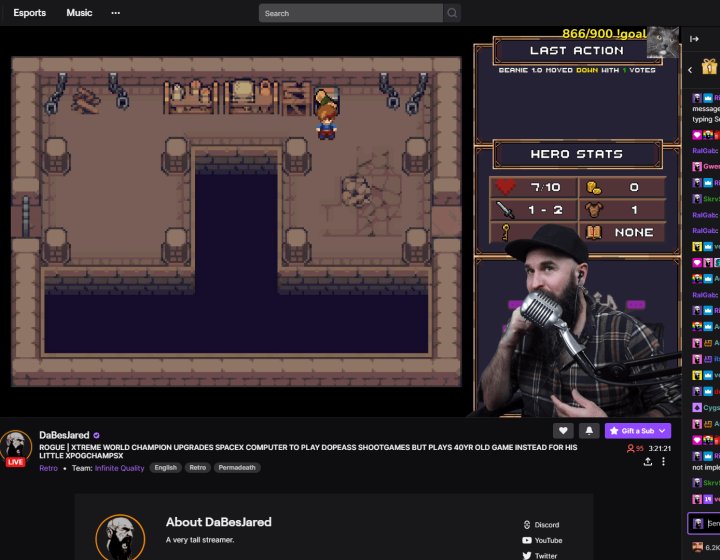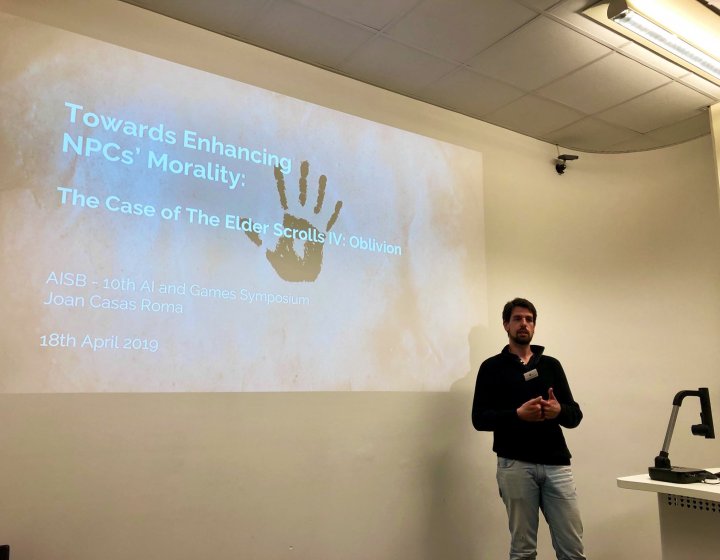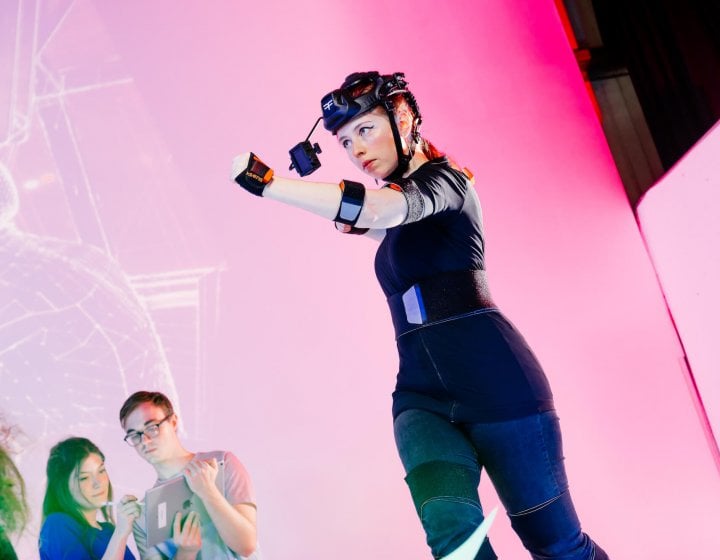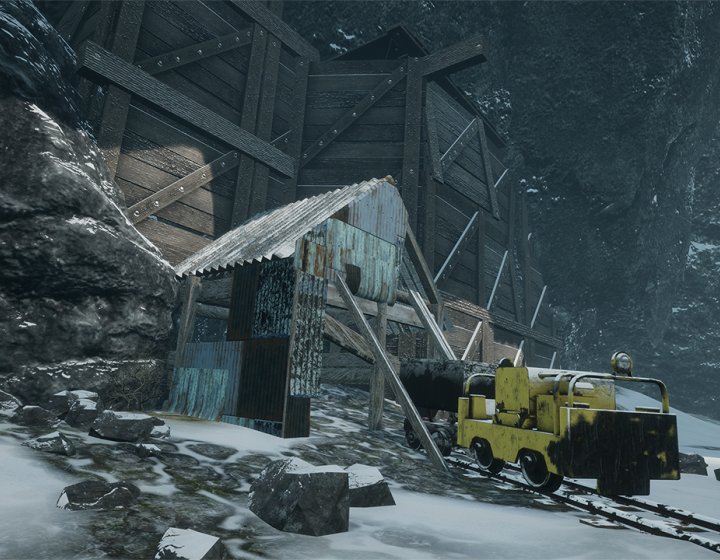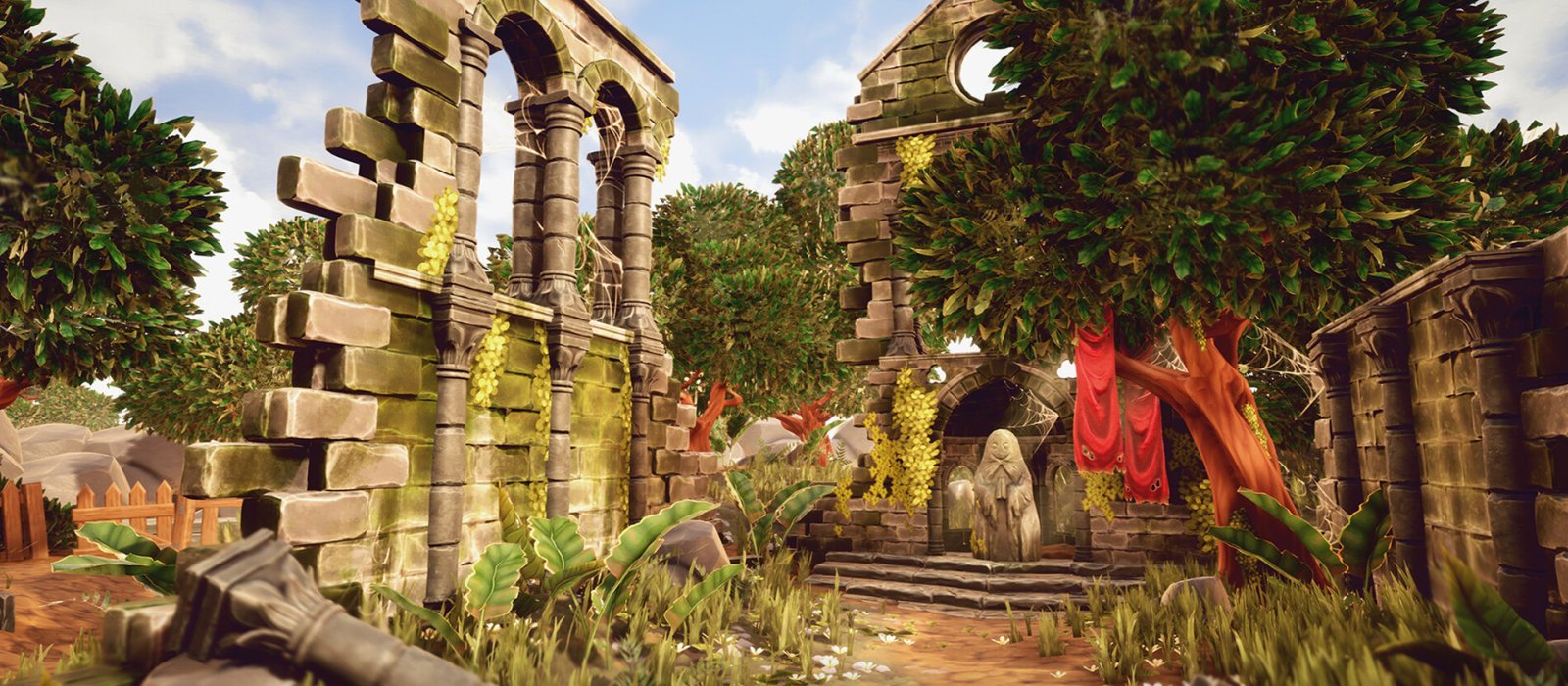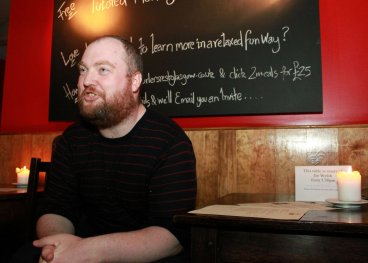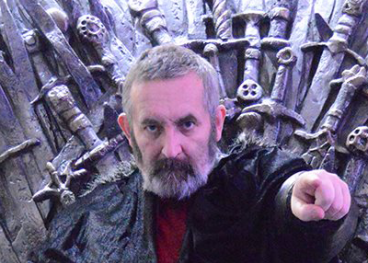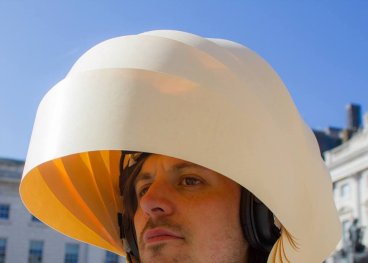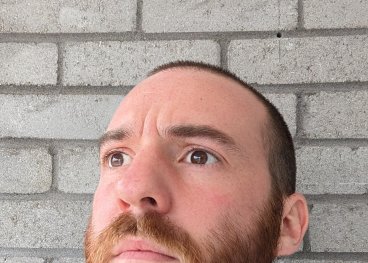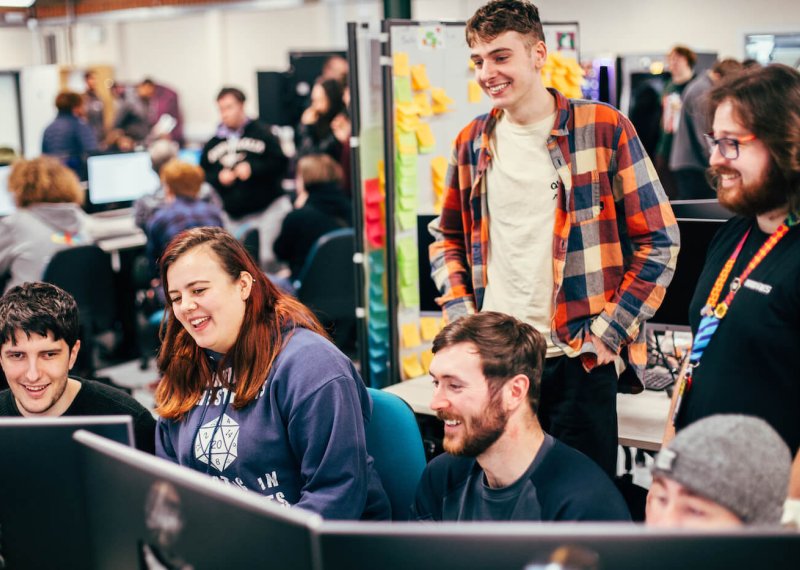Course overview
We’re ranked as the number one university for game design in England (Princeton Review, 2025), and we take that accolade very seriously. On this Game Development degree, you’ll establish your specialism within the field, gaining industry-level technical, creative and professional skills within an environment that mirrors a real games development studio. You’ll also work as you might in industry, learning to communicate and collaborate effectively as you operate in multi-skilled teams to develop your own games from the outset.
Why study this course at Falmouth?
- Build your own games from day one and have the opportunity to establish your own company in your third year
- Work in one of the largest and best-equipped dedicated game-making spaces of any university in the UK
- Learn in a department dedicated to gaming and be surrounded by people working in all aspects of the industry
- Develop a multidisciplinary approach, using Unity and Unreal to touch upon all aspects of game creation
- Showcase your work to industry leaders through our annual Games Expo and gain professional insights via guest lecturers
- Have the flexibility to change your area of specialism based on your skills and interests
Lead images: Louis Sullivan, Repeater Roulette by Average Soup.
Overviews of each specialism
Overview
Get into teams from the start to learn core game art abilities, such as environment modelling and game engine integration, using industry-standard packages, processes and pipelines.
Course routes
On this Game Development: Art degree, you'll have the opportunity to gain a BA(Hons) degree over three years or the option to study Game Development: Art BA(Hons) with Integrated Foundation Year and/or professional placement study options.
From module information to course aims and assessment criteria, discover the full course details:
- Three year degree
- Four year degree with Integrated Foundation Year
- Four year degree with professional placement
UCAS codes
- BA(Hons) 3 year: W281
- Integrated Foundation Year BA(Hons) 4 year: FY02
- Professional placement BA(Hons) 4 year: PY29
Overview
Prototype and implement the rules, systems, puzzles and levels that shape player experience, iteratively testing and refining them.
Course routes
On this Game Development: Design degree, you'll have the opportunity to gain a BA(Hons) degree over three years or the option to study Game Development: Design BA(Hons) with Integrated Foundation Year and/or professional placement study options.
From module information to course aims and assessment criteria, discover the full course details:
- Three year degree
- Four year degree with Integrated Foundation Year
- Four year degree with professional placement
UCAS codes
- BA(Hons) 3 year: W284
- Integrated Foundation Year BA(Hons) 4 year: FY28
- Professional placement BA(Hons) 4 year: PY31
Overview
Become a gameplay programmer who implements and tests core game mechanics and evaluates how players interacts with them.
Course routes
On this Game Development: Programming degree, you'll have the opportunity to gain a BA(Hons) degree over three years or the option to study Game Development: Programming BA(Hons) with Integrated Foundation Year and/or professional placement study options.
From module information to course aims and assessment criteria, discover the full course details:
- Three year degree
- Four year degree with Integrated Foundation Year
- Four year degree with professional placement
UCAS codes
- BA(Hons) 3 year: W285
- Integrated Foundation Year BA(Hons) 4 year: FY30
- Professional placement BA(Hons) 4 year: PY33
Overview
Create backstories, dialogue, quests and player journeys, learning to translate foundational writing skills into narrative design for games.
Course routes
On this Game Development: Writing degree, you'll have the opportunity to gain a BA(Hons) degree over three years or the option to study Game Development: Writing BA(Hons) with Integrated Foundation Year and/or professional placement study options.
Modules may be taught across Penryn and Falmouth campuses. From module information to course aims and assessment criteria, discover the full course details:
- Three year degree
- Four year degree with Integrated Foundation Year
- Four year degree with professional placement
UCAS codes
- BA(Hons) 3 year: W286
- Integrated Foundation Year BA(Hons) 4 year: FY31
- Professional placement BA(Hons) 4 year: PY34

Similar courses

Artificial Intelligence BSc(Hons)
Artificial intelligence is transforming every corner of our world: from cars that drive themselves t...
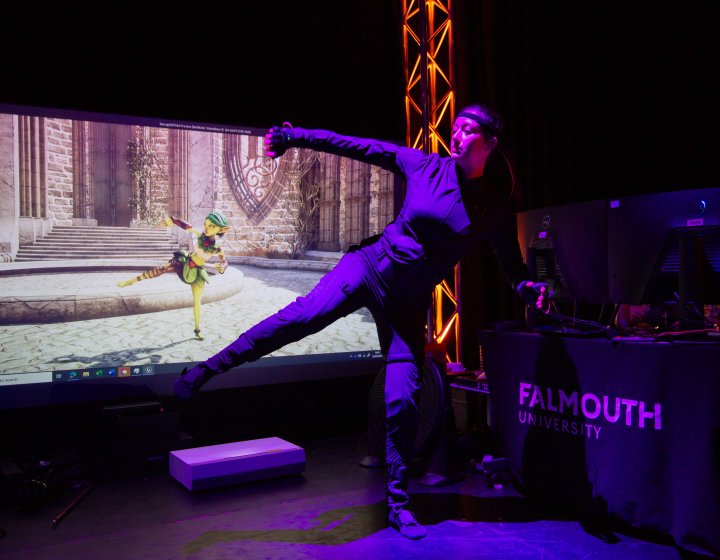
Creative Computing BSc(Hons)/BA(Hons)
Work across creative disciplines to explore creative coding, interactive systems, digital storytelli...
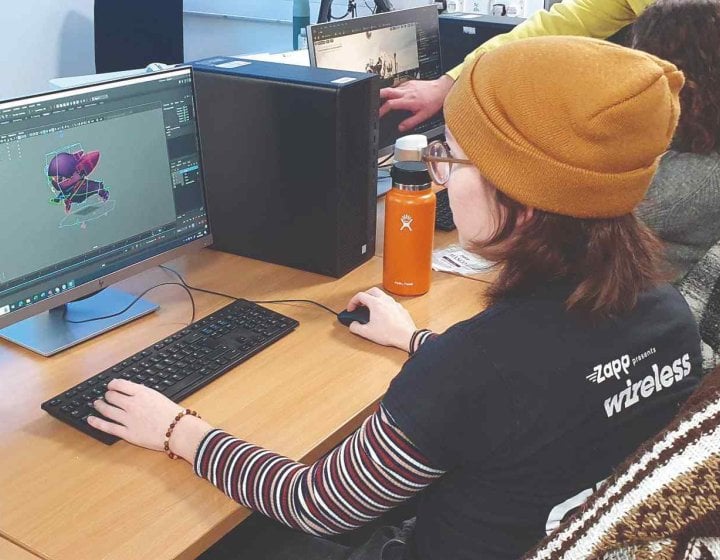
Game Animation BA(Hons)
Gain experience of working to a real-time animation pipeline and graduate with a rich portfolio of w...
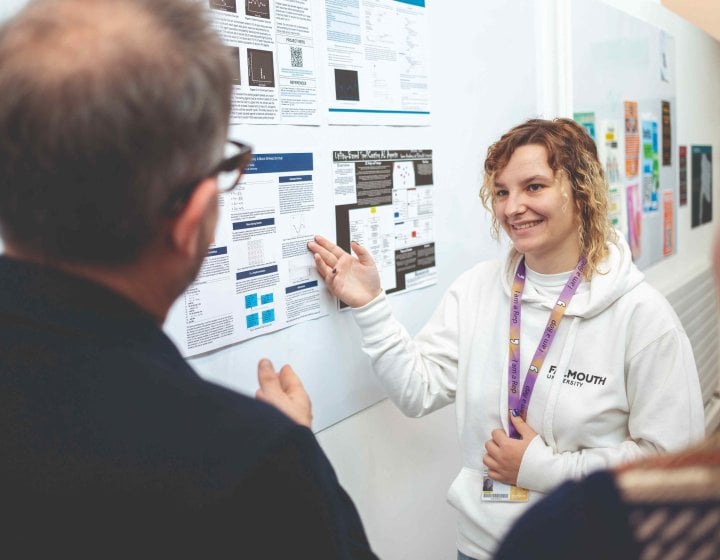
Computer Science BSc(Hons)
New immersive realities, data-rich interactions, automations and ever-more ubiquitous systems are sh...
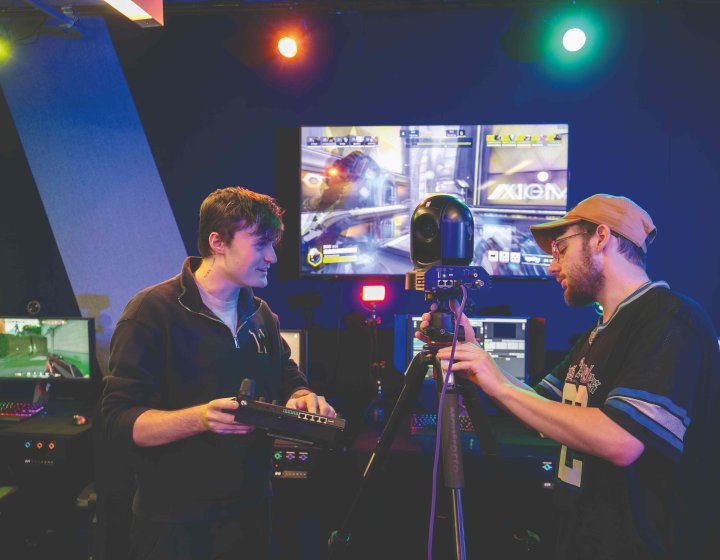
Esports & Livestreaming BA(Hons)
Immerse yourself in Esports culture on this degree, which offers a unique opportunity to be at the f...
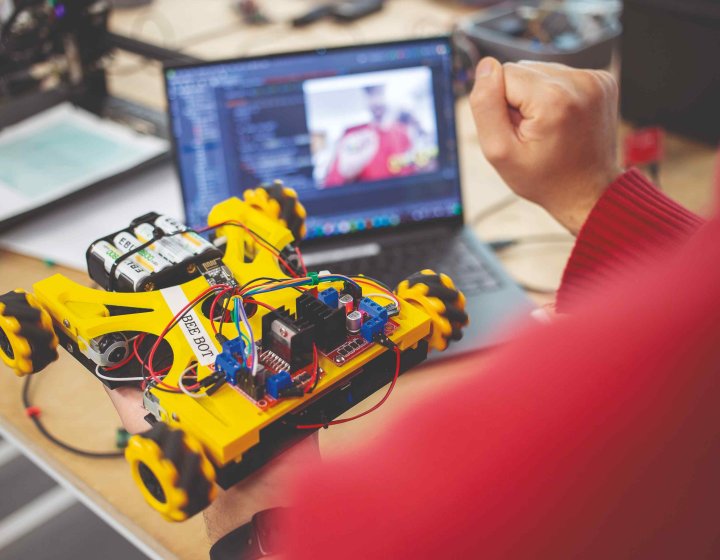
Robotics BSc(Hons)
Explore the world of artificial intelligence and create interactive robots that respond to the chall...
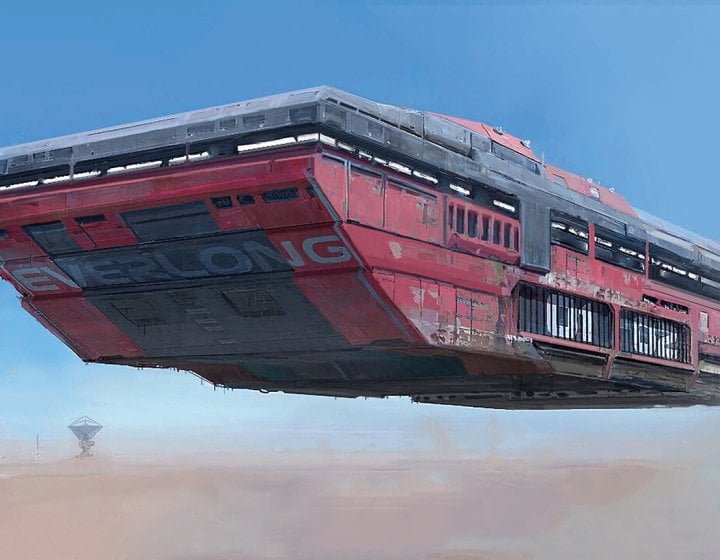
Game Art BA(Hons)
Work in multi-skilled collaborative teams and graduate as a confident, industry-ready game artist. ...
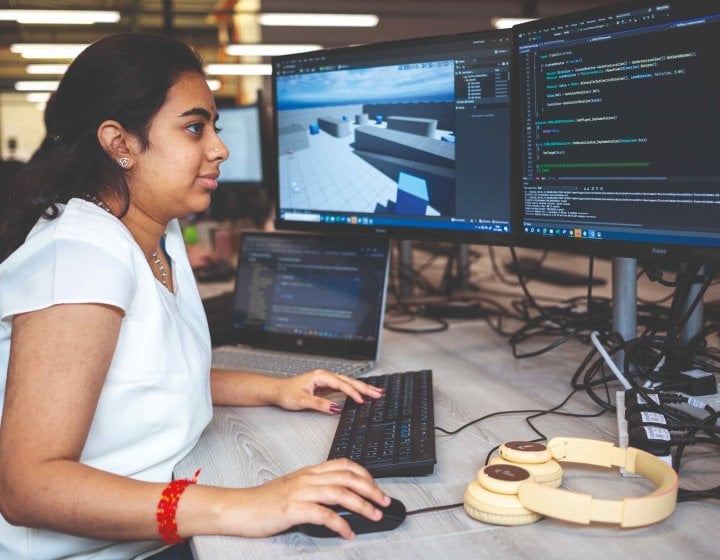
Computing for Games BSc(Hons)
Learn how to shape the games of the future by studying game development through the lens of computer...
